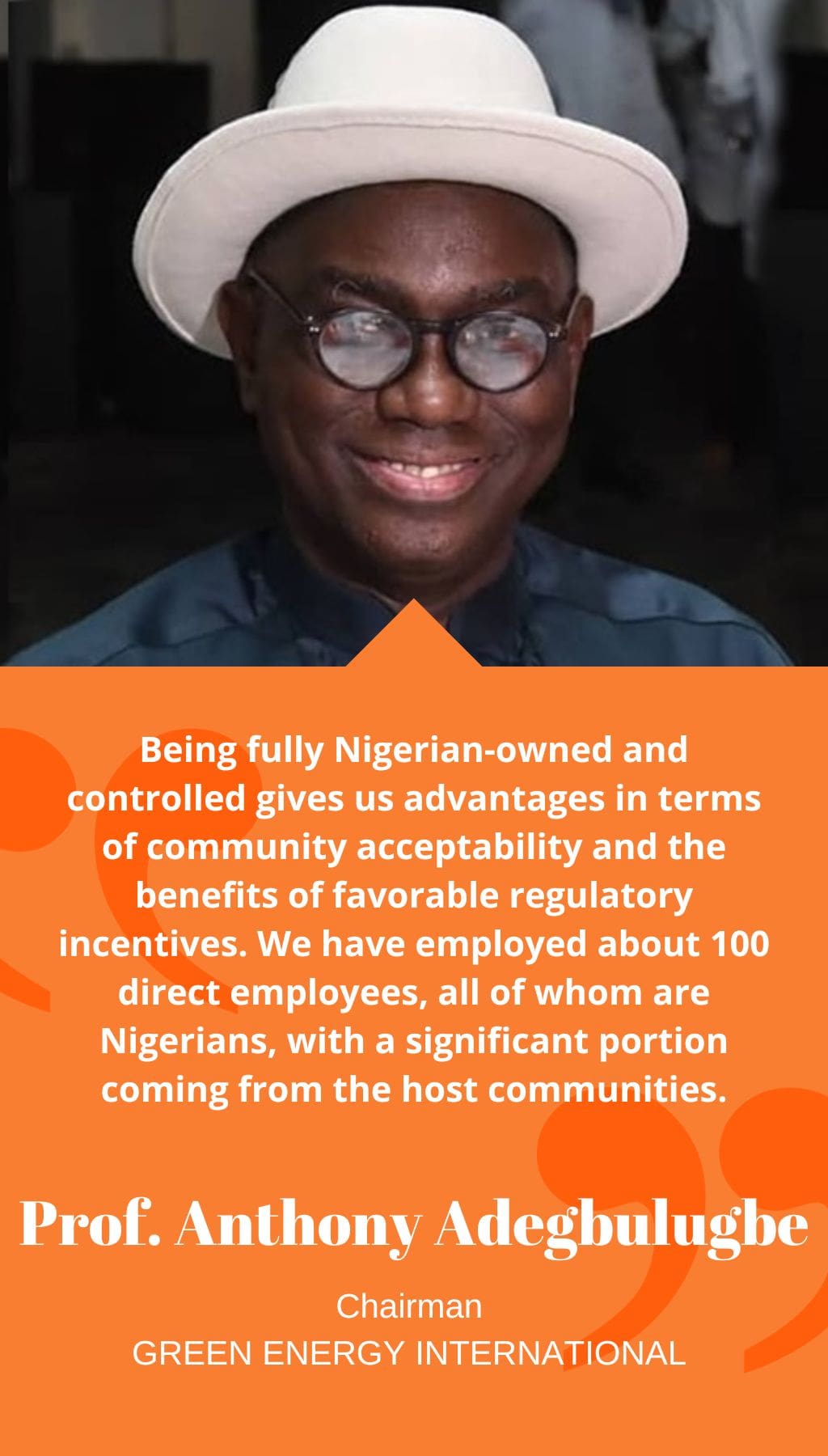
- Nigeria | 9 September 2020

Can you provide a brief overview of Green Energy and its role in the oil and gas industry in Nigeria?
Green Energy was established in 2006 as an integrated energy company. We operate the Otakikpo Marginal field (OML 11), located approximately 60 km southeast of Port Harcourt, with our operational base in Ikuru town, Andoni Local Government. Since 2017, we have been producing around 6,000 barrels of oil per day (bopd). Our innovative evacuation system, utilizing a 6 km offshore export pipeline to a shuttle tanker and onward export to a third-party floating storage and offloading (FSO) vessel at Ima Terminal, has proven to be highly efficient. We have achieved evacuation losses of less than 1%, which is a significant accomplishment considering the industry average is over 25%.
The name “Green Energy” reflects our commitment to environmental friendliness and sustainability in all our operations. Our primary focus is on developing our assets with gas utilization projects to comply with the zero-gas flare policy of the Federal Government. We aim to become an integrated energy company and are open to partnerships.
How do you perceive Green Energy’s clients and host communities?
Green Energy has a long-term contract with Shell, our sole crude buyer, thanks to our strong relationship with them. We have been fortunate to have cooperative host communities. Being fully Nigerian-owned and controlled gives us advantages in terms of community acceptability and the benefits of favorable regulatory incentives. We have employed about 100 direct employees, all of whom are Nigerians, with a significant portion coming from the host communities.
We believe it is our moral duty to extend the benefits of our operations to other stakeholders, particularly our host communities. We prioritize the empowerment and protection of people and the environment. To achieve this, we have made significant investments in health, education, sustainable livelihoods, and economic development. Our corporate social responsibility interventions include infrastructure development, empowerment programs for women and youth, entrepreneurship development, scholarships at secondary and tertiary levels, and medical and health outreach initiatives. We have also established a partnership with John Hopkins University for health programs in Nigeria, further highlighting our focus on human capital development. The host communities are pleased with our efforts towards their development.
Can you provide more information about technological advancements in Nigeria’s oil and gas industry?
Green Energy, being a smaller player in the market, does not play a significant role in driving technological advancements. From my perspective, there are no new technologies that we are currently deploying. However, what sets us apart is our innovative business model and approach. We are not solely focused on oil production as an end in itself but aim to explore all opportunities in the oil and gas value chain for the benefit of our stakeholders and the Nigerian economy.
Is the idea of establishing small power plants for local communities, as proposed by late President Yar Adua, still feasible?
Absolutely. The gas produced from our operations can generate approximately 40 MW of power. The era of building large power plants is fading, and the government is implementing policies to create an open power market. One of the challenges is the lack of infrastructure for gas-to-power initiatives, but the government is actively addressing this issue. Gas is now being channeled for power generation and other applications. Pricing has been a concern in the past, but steps are being taken to improve gas prices. Additionally, companies are no longer restricted to selling power exclusively to the national grid and can sell to any willing buyer. The environment for gas utilization is improving, and we are optimistic about the future.
Does Green Energy have any plans for expansion?
Green Energy aims to scale up its operations from 6,000 bopd to 30,000 bopd. We are currently in discussions with international banks to secure financing for our expansion plans. We are also in talks with a reputable international service provider who will assist us in certain processes. If all goes well, we anticipate reaching financial closure soon. In the future, we envision Green Energy expanding and taking on larger projects. As our production increases, we recognize the need to move away from our current evacuation method, which relies on a third-party FSO vessel. Therefore, we are planning to build a one-million-barrel crude oil onshore terminal, which would make us the first indigenous company to do so in 50 years. We expect the terminal to be completed by Q2 2021. Additionally, we are investing in a small modular refinery to further enhance our operations and contribute to the local economy.














